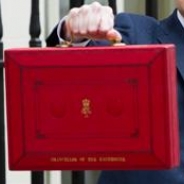
The basic state pension increases to £110.15 from April 2013, benefiting all pensioners. However, there are other measures that affect those on the lowest and middle incomes differently.
Background
As announced last year, the higher personal allowance given in past years to people aged 65 or 75 and over will no longer be available to those reaching their 65th birthday in 2013/14. Also, those who have already qualified for the higher age allowance will see no increase in future years, until the level of the basic personal allowance catches up.
The Low Incomes Tax Reform Group elaborates further. Although nobody will lose in cash terms, those approaching 65 now may have to revise their expectations and prepare to pay more tax than they might have anticipated. And more pensioners could be drawn into self-assessment as a higher proportion of those reaching 65 become, or remain, taxpayers than in previous years.
Also, by freezing the higher age allowances at their 2012/13 level, those pensioners who remain entitled to them will become worse off in real terms as their pensions are indexed over the next few years.
What happens in 2013/14
A small group of middle-income older taxpayers will still be marginally better off because the level at which the age-related part of the personal allowance begins to be withdrawn has not been frozen. That threshold is £700 higher in 2013/14 than in 2012/13 – up from £25,400 to £26,100.
More complexity in the tax system for pensioners
LITRG observes that the means by which the age-related allowances are effectively being withdrawn has increased the complexity of the tax system for pensioners, at least in the short term – an unfortunate development. As the Office of Tax Simplification prepares its final report on its review of pensioner taxation, LITRG hopes that simplification can be achieved in the longer term.


Please register or log in to add comments.
There are not comments added